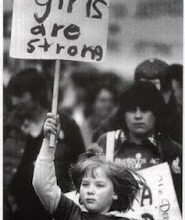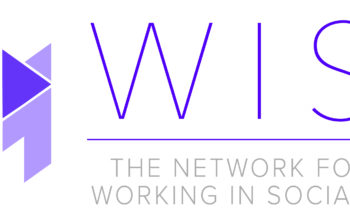This interview is part of our three-part piece on Women in Housing. You can find the background information to these interviews in our ‘Women in Housing: Innovation and Disruption’ introductory piece.
Jenny owns and leads Danery, offering strategic change, service improvement or digital transformation. This inspiring interview was conducted via email between Jenny and Gaby Wolferink.

Tell us a bit about who you are and how you got into social housing?
My names in Jenny Danson. I’ve worked in service improvement and transformation throughout my career – which is now over 30 years! After my degree I wanted to work in high end catering, but due to the recession at that time there was not much demand, so ended up working in a south London hospital managing its FM services. Where rather than silver service, my interesting experiences included working in the mortuary to cleaning toilets… I realised that I loved working with people.
I then spent some time in business development before I moved industries to work for BAA Ltd at Heathrow and Gatwick Airports. One of my roles there was Airport Duty Manager, responsible for the operational running of Heathrow Airport, I lead the airport incident management from hijacks through to 9/11.
Twenty years ago I started working for a small interim consultancy who specialised in service improvement in Councils where I got my first taste of Housing with Nottingham City. This brought together my love of working with people and my desire to improve services to customers, whilst delivering best value.
Since then I have been lucky enough to work both on client and contractor side with Councils, ALMOs and Housing Associations, as well as with repair and maintenance providers (in house and as a contractor) and with Developers and manufacturers of housing in a range of roles from Project Manager to Interim CEO.
Much of my time now is spent working with Ian Wright and the Disruptive Innovators Network, along with Executive Coaching. I am the Network Director for PropTech Innovators Network (PIN) and Intelligent Automation Network (IAN). This brings together two areas I am passionate about – making things better for tenants and customers (and organisations) through an innovative culture that embraces technology and continues to look at and experiment with doing things differently to improve services and reduce operating costs.
Do you think that women have a different experience working in social housing than men?
I have worked in most areas of social housing, but spent most of my time within the asset world. It has been great to see many more women leading asset and development teams over the last few years, but it is still an area where there are predominantly more white (straight) males so there’s a long way to go to achieve parity.
For most of my time in housing I feel I have been treated as an equal, being judged on what I do rather than my gender. I am lucky that throughout that time I’ve had supportive bosses and peers. I am acutely aware that that is not the same for all women (and men). I have experienced things that most men wouldn’t in my career from the assumption by some men that you are there to take the minutes or make the drinks through to the ‘banter’ that occasionally has crossed the line, but my experience of this was predominately from other sectors I’ve worked in.
Yet there are still not enough women working in trades or in the manufacturing of homes, or in leadership roles at all levels. We all know a diverse workforce delivers better outcomes – and this is something that we collectively need to do more on, promoting the property side of housing as a career for women at all levels.
What do you think needs to change to ensure better equality of opportunity in social housing?
We need to promote the great benefits of working in social housing from a young age, before gender stereotypes are completely formed. Be that as a trade’s person delivering valued services in a home, manufacturing homes in a factory, a quantity surveyor pricing a project or a project manager leading the regeneration of an estate. Girls and young women need to see people like themselves doing this work. I believe that supporting girls at primary school so that they are excited about STEM activities in schools along with housing providers and contractors providing apprenticeships or retaining opportunities. This is not just for women but to provide inspiration and equal opportunity for all.
At a senior level, the idea of Executive job swapping for 6-18 months within an organisation is really appealing. Those organisations that have done it get a new richness and appreciation of each other and it allows gender (and other) stereotypes to be challenged. This for me is as much about equality of opportunity for all.
What does innovation mean to you?
Innovation to me is a change in an existing product or service. Innovation is crucial to the success of any organisation. If an organisation does not keep innovating and improving, in real terms it will be going backwards. Invention is different to innovation – as invention is creating something new, whereas innovation is improving what you’ve already got.
Who or what drives change and innovation in the housing sector?
There are two ways innovation and change happen in the housing sector. The first is through regulation, following awful tragedies like Grenfell leaders wait to be told what to do through regulation, this reactive change takes a long time and comes with a significant lag effect. The second is where leaders see the benefits that innovation can bring and proactively position their organisations to embrace it. Innovation can be uncomfortable for some, as if you are being innovative, then you need to will be failing and learning whilst in pursuit of the solution. Failing and failing fast and sharing that learning is something that should be embraced. Successful innovative organisations like Amazon, John Lewis, JCB, Experian etc do it at scale, failing fast and taking the learning to deliver a better solution in the end.
Can you tell us about what you are doing differently to bring about positive change in social housing practice?
I work with Ian Wright for the Disruptive Innovators Network (DIN). DIN enables housing providers to be more innovative and grab the opportunities to build back better & maximise their social impact. Focusing on three themes of Technology, Leadership and Culture, DIN helps leaders work collaboratively, learn from each other and out of sector disruptors sharing the cost, risk and impact of innovation.
I lead on the Proptech Innovation Network (PIN) where we focus on the technology that can be used to design, manufacture, maintain and manage homes. I do this through thought leadership with policy and strategic leaders, Lightning Pitches where start-ups get to pitch to housing providers with 7 slides for 7 minutes, with 7 minutes of questions. I also run DINLabs, where we get expressions of interest from c.5 housing providers to work with a supplier to solve a particular problem(s) over 12 weeks. This year we’ve explored Virtual stock condition surveys, Automating legionella compliance and using IoT with fire suppressants systems. All open many opportunities for positive change for tenants, for reducing costs and supporting the delivery of net zero.
I provide coaching and mentoring to women who are at the start of their career through to Executive positions. I find this a huge privilege and get enormous satisfaction from doing it and helping them be the best they can be.
Many thanks to Jenny for her time!



